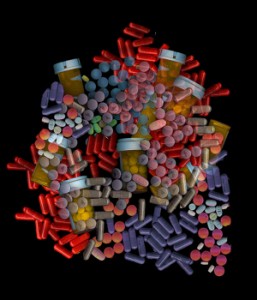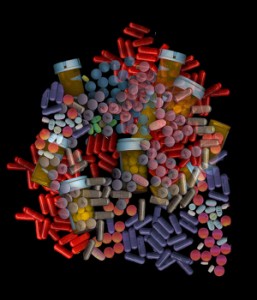Depression has an especially cruel season called relapse. It always happens after the worst seems to be over; hope like sunlight is restored; life without depression is in full bloom. Then suddenly it’s winter again. The more often it happened to me, the more impossible the goal of recovery seemed to become. I was surprised […]
relapse
Depression Relapse and Resilience
Sometimes relapse into depression comes on like the weather, suddenly there, a change in the atmosphere you breathe and the temperature and moisture of the air around you. I’ve been feeling that lately and find myself in the midst of a cool and sad stillness that draws my attention in with an almost magnetic force. […]
Antidepressants: My Personal 10-Point Guide
Trying to get a balanced view of antidepressants is becoming harder by the day. Supporters of antidepressant use shoot down the statements of those activists who reject the use of psychiatric medications. Those activists, in turn, debunk the simplistic claims that depression is caused by a chemical imbalance in the brain, describe the drugs as useless or worse and go after the pervasive influence of the pharmaceutical companies.
Those who’ve used medications for years are taking sides as well. If your life has either been saved or shattered by these medications, you’ll talk and write passionately about your experience. You want others to get the information that’s guided you, but misinformation is everywhere.
Long-Term Antidepressant Treatment: A Strategy for Recovery or More Depression?
The more I get into the research on antidepressants, the more questions I have. In the last post, I raised issues about the endless search for the right medication; the discouraging record of relapse after becoming symptom-free; and the puzzling primacy of antidepressant treatment for an illness with complex causes that go way beyond biology.
Those questions are only the starters. I have even greater concern about long-term antidepressant treatment. Most psychiatrists consider it necessary for severe, recurrent illness, but others – apparently a small minority – are speaking out about adverse effects of using these drugs for prolonged periods.
How Well-Being Therapy Works
The need for an innovative treatment like Well-Being Therapy hits you hard when you learn a bit about relapse. It happens – a lot. In fact, the majority of people who recover from depression will relapse in the months or perhaps years following the end of symptoms. Medications don’t prevent it, neither does cognitive behavioral […]
Delay, Fear and Perfectionism Out – Recover Life Unlocked
As you may have figured out by now, I’ve had a hard time launching Recover Life from Depression, but I’ve finally opened it up. “Unlocking” seems like a better word since I’ve struggled for months to break through a hard resistance to getting it done. I was slow to grasp what was going on, but […]




